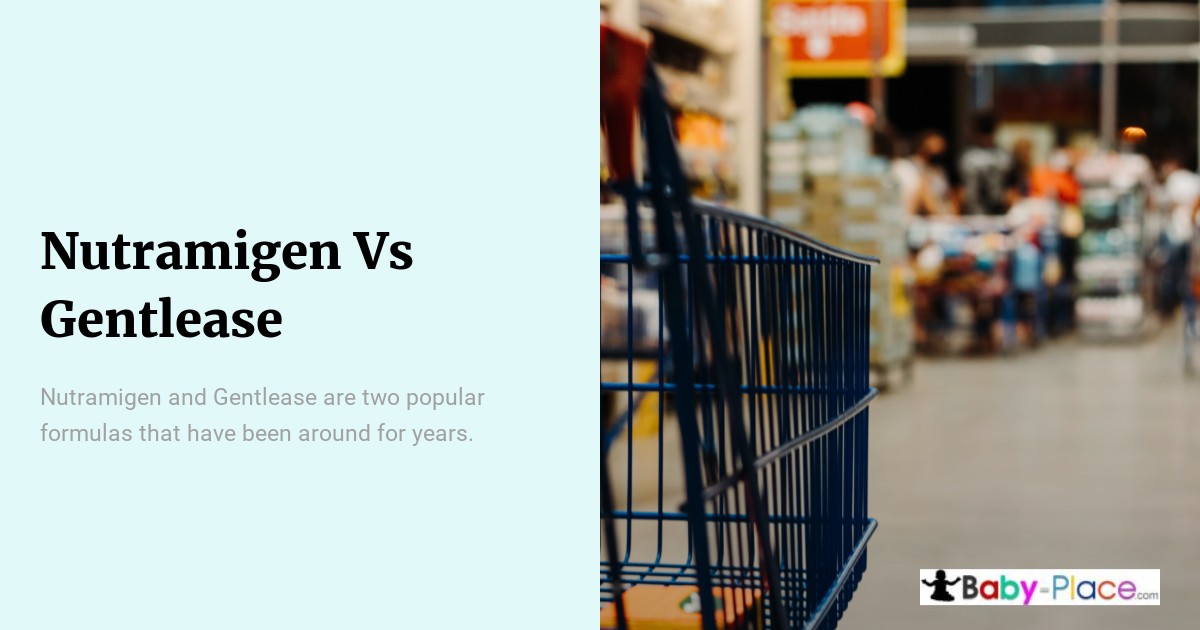
Nutramigen and Gentlease are two popular formulas that have been around for years. I am here to help explain the differences between these two products so that you can make an informed choice about which one is right for your family.
Nutramigen
Nutramigen is a hypoallergenic infant formula that treats fussiness, gas, and crying caused by cow’s milk protein allergy (CMPA). It contains extensively hydrolyzed casein proteins, which are broken down into very small peptides, making them suitable for babies with CMPA to digest. On top of this, Nutramigen also includes DHA & ARA fatty acids as well as all other essential vitamins and minerals needed in order to provide complete nutrition for infants from birth to 12 months.
Gentlease
Gentlease, on the other hand, is another specialized infant formula specifically formulated to reduce fussiness, gas, and crying in sensitive tummies due to its gentler blend of carbohydrates. This product uses partially hydrolyzed whey protein concentrate and contains lactose as its primary carbohydrate source, along with galactooligosaccharides (GOS), a type of prebiotic.
Additionally, Gentlease has added iron, vitamin E, choline & lutein, which aid in brain development for infants up to 12 months old.
Whether you choose Nutramigen or Gentlease, both can provide similar benefits when looking at providing relief from digestive issues associated with CMPA.

Comparison Of Nutramigen And Gentlease
Nutramigen and Gentlease are two infant formulas manufactured by the same company, Enfamil. Both products are designed to provide essential nutrients for infants who cannot tolerate cow milk-based formula. To better understand the differences between these two specialty formulas, let’s take a look at their nutrient profiles in this table:
| Product | NutraMigen | Gentlease | Enfamil Neuropro | |
|---|---|---|---|---|
| Ingredients | Extensively hydrolyzed casein protein & modified cornstarch | Unique blend of MFGM & DHA similar to breastmilk, along with prebiotics for immune support | Unique blend of MFGM & DHA similar to breastmilk along with prebiotics for immune support | |
| Benefits/Uses | For brain building nutrition from birth through 12 months | For babies with severe cows’ milk allergy or lactose intolerance | For fussiness due to sensitivity or gas relief |
As you can see, both products offer complete nutritional content that is tailored to accommodate an infant’s needs. However, Nutramigen has been specially formulated for babies with severe cows’ milk allergies or those who have difficulty digesting lactose.
The partially hydrolyzed whey proteins in Gentlease make it easier to digest than regular cow milk-based formulas; however, it does not address potential allergies associated with cow milk like Nutramigen does. Additionally, Enfamil NeuroPro provides unique benefits, such as its special blend of fatty acids, which includes MFGM (Milk Fat Globule Membrane) and DHA (Docosahexaenoic Acid). This combination helps promote healthy brain development in infants during their first year of life.
It’s clear that each product offers different benefits depending on your baby’s individual needs. If your little one has significant trouble tolerating cow milk-based formula, then Nutramigen may be the best choice for them. On the other hand, if they experience gas discomfort and milder sensitivities but still need additional nourishment beyond breastmilk, then Gentlease might be worth exploring further. Ultimately, consulting with your pediatrician about what type of formula is right for your baby will help you decide which option would work best for them long term.
Effects Of Hypoallergenic Formulas On Infants
Hypoallergenic formulas can provide nutrition to infants who have milk protein allergies. Nutramigen contains extensively hydrolyzed proteins, which are easier to digest and help reduce allergic reactions and colic symptoms quickly. Gentlease uses partially hydrolyzed proteins, making it gentler than regular formulas but not suitable for severe allergies. Both formulas support healthy growth, but Nutramigen is better for babies with stronger milk protein allergies, while Gentlease suits babies with milder sensitivities or digestive issues.
Understanding Milk Protein Allergies
Milk allergy is an adverse reaction by the body’s immune system to one or more proteins in cows’ milk. Symptoms range from mild reactions such as hives and eczema to life-threatening anaphylaxis. Parents need to recognize when their child may have a cow’s milk allergy so that they can select appropriate formula alternatives like Nutramigen and Gentlease.
Mead Johnson Nutritionals produces Nutramigen, which contains extensively hydrolyzed protein, which helps reduce allergic responses while providing the necessary nutrition for growth. Similac Advance, conversely, is a cow’s milk-based formula fortified with iron, lutein, and DHA—nutrients essential for infant development. It is not made with human milk. Meanwhile, Gentlease also has reduced levels of lactose but provides fewer calories per ounce than either Nutramigen or Similac Advance.
It is important to remember that different babies will react differently to various formula types due to individual sensitivities or allergies; therefore, it is best to consult with your baby’s pediatrician before deciding on which type of formula works best for you and your little one.
Role Of Lactose In Baby Formula

The role of lactose in baby formula is an important consideration when choosing the right option for your little one. Lactose, a sugar found naturally in cow’s milk, can be difficult to digest and cause digestive issues or discomfort if consumed by those with cows’ milk allergies. Nutramigen and Gentlease are both options that offer pro total comfort to babies who cannot tolerate regular breastmilk or formula due to a cows’ milk allergy.
Nutramigen uses extensively hydrolyzed proteins that break down into small pieces so they are easy to digest and don’t cause any symptoms associated with cows’ milk protein allergies. It also contains corn syrup solids as its primary carbohydrate source instead of lactose, which makes it easier on the baby’s tummy than formulas containing lactose.
Gentlease has partially hydrolyzed proteins, making them easier for the body to process than other types of formula, but it still may not provide enough relief from severe reactions caused by cows’ milk protein allergies. However, Gentlease does contain lactose as its main carbohydrate source which provides energy for growing babies without causing extra stress on their digestive systems due to being more easily digested than whole proteins. This makes it an ideal choice for some cases where milder reactions are present, thus providing a good alternative formula option.
Therefore, understanding the role of lactose in baby formula helps parents choose the best type for their child depending on their individual needs and tolerance levels. Both Nutramigen and Gentlease have their advantages when it comes to providing pro total comfort while giving children essential nutrients they need during growth spurts.
Human Milk Vs Cow’s Milk: What’s The Difference?
The vast differences between human milk and cow’s milk are undeniable. Human milk is specially designed to meet the needs of a growing baby, while cow’s milk has been modified over time to suit humans’ dietary preferences.
| Nutrient | Human Milk | Cow’s Milk |
|---|---|---|
| Protein | 1g/100 mL | 3.4 g/100 mL |
| Fat | 5g/100 mL | 3.6 g/100 mL |
| Carbohydrates | 6g/100 mL | 4.8 g/100mL |
| Calories | 67 kcal/ 100 mL | 42 kcal / 100 mL |
When it comes to protein content, human milk contains twice as much as cow’s milk does – 7 grams per 100 milliliters compared with 3.4 grams in cow’s milk. Similarly, human milk contains more fat than cow’s milk does; 5 grams per 100 milliliters versus 3.6 in cow’s milk. Carbohydrate levels are also higher in human breastmilk at 6 grams per 100 milliliters compared with 4.8 in cows’ milk, and calories are 60 kilocalories per 100 milliliters in human breastmilk versus 42 kilocalories per 100 ml in cows’ milk.
In short, when viewed nutritionally, there are significant differences between these two types of milk that should be considered when deciding what kind of formula or food to feed your baby!
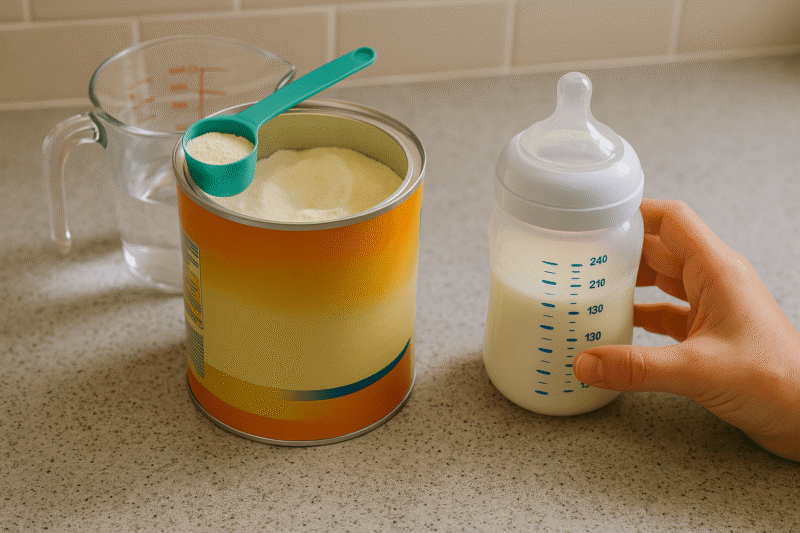
Feeding Issues And How To Overcome Them
Feeding issues can be a common occurrence for parents of children with food allergies, such as those who are allergic to cow’s milk protein. Nutramigen and Gentlease are two hypoallergenic infant formulas designed specifically for babies with sensitivity or allergy to foods that contain cow’s milk protein.
Conclusion
When choosing between Nutramigen and Gentlease, consider your baby’s specific needs. Nutramigen works best if your baby has a severe milk protein allergy or needs fast relief from colic symptoms. Gentlease is a good choice if your baby experiences mild digestive issues, like fussiness and gas. Ultimately, the best decision is the one guided by your pediatrician and your baby’s individual needs.
Frequently Asked Questions:
What is the main difference between Nutramigen and Gentlease?
Nutramigen is a hypoallergenic formula designed for babies with severe cow’s milk protein allergy (CMPA), containing extensively hydrolyzed casein proteins. Gentlease, on the other hand, is formulated for milder digestive issues like fussiness and gas, using partially hydrolyzed whey proteins and lactose as its primary carbohydrate.
Which formula is better for a baby with a severe milk protein allergy?
Nutramigen is the better choice for babies with severe cow’s milk protein allergy (CMPA) because it contains extensively hydrolyzed proteins that minimize allergic reactions and provide relief from colic symptoms.
Does Gentlease contain lactose?
Yes, Gentlease contains lactose as its primary carbohydrate source, along with galactooligosaccharides (GOS), a prebiotic that supports digestion.
What are the key nutritional benefits of Nutramigen?
Nutramigen provides complete nutrition for infants, including DHA & ARA fatty acids, essential vitamins, and minerals. It is specifically formulated to support babies with cow’s milk protein allergies by using extensively broken-down proteins for easier digestion.
Should I consult a pediatrician before choosing between Nutramigen and Gentlease?
Yes, it is recommended to consult with your pediatrician before selecting a formula, as they can assess your baby’s specific needs, allergies, and sensitivities to determine whether Nutramigen or Gentlease is the best option.

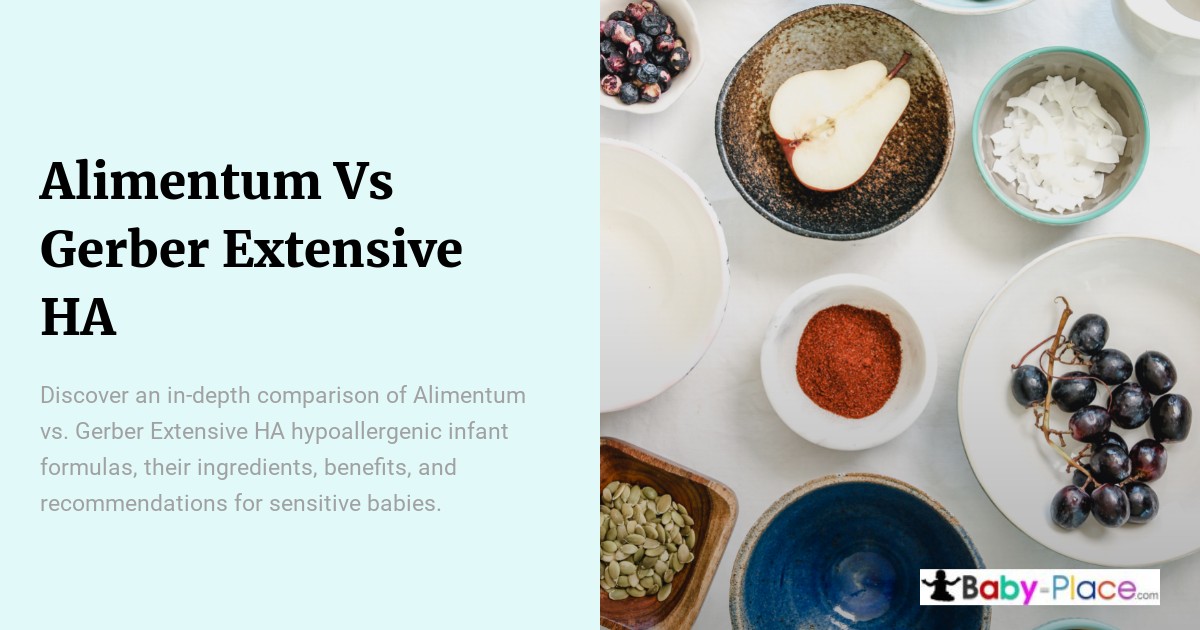
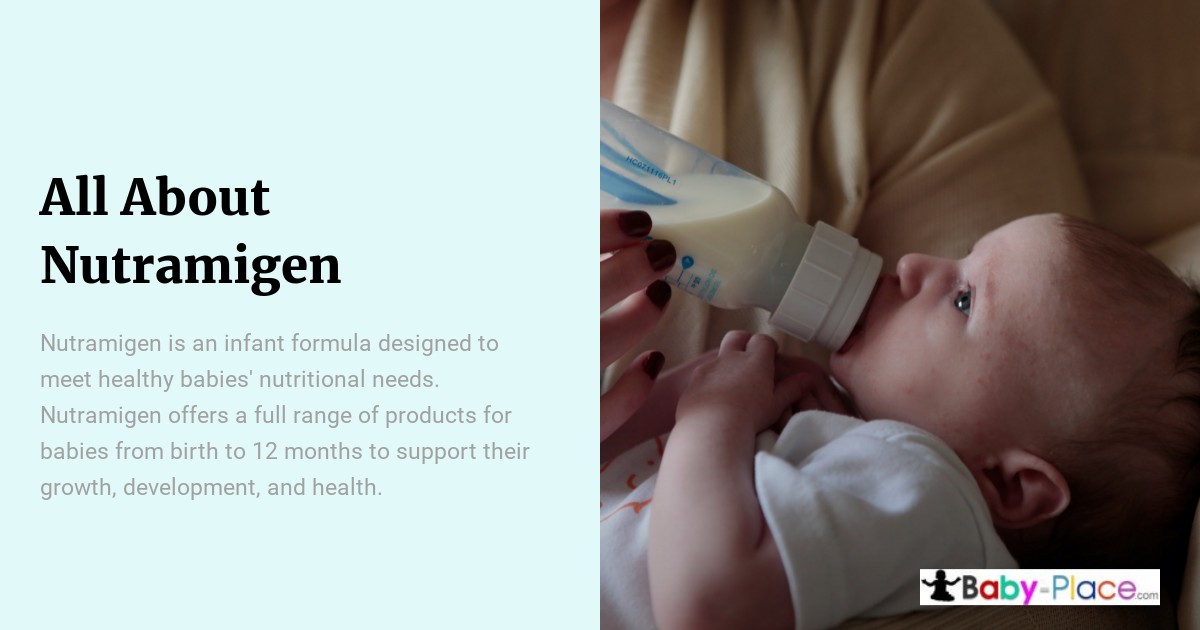
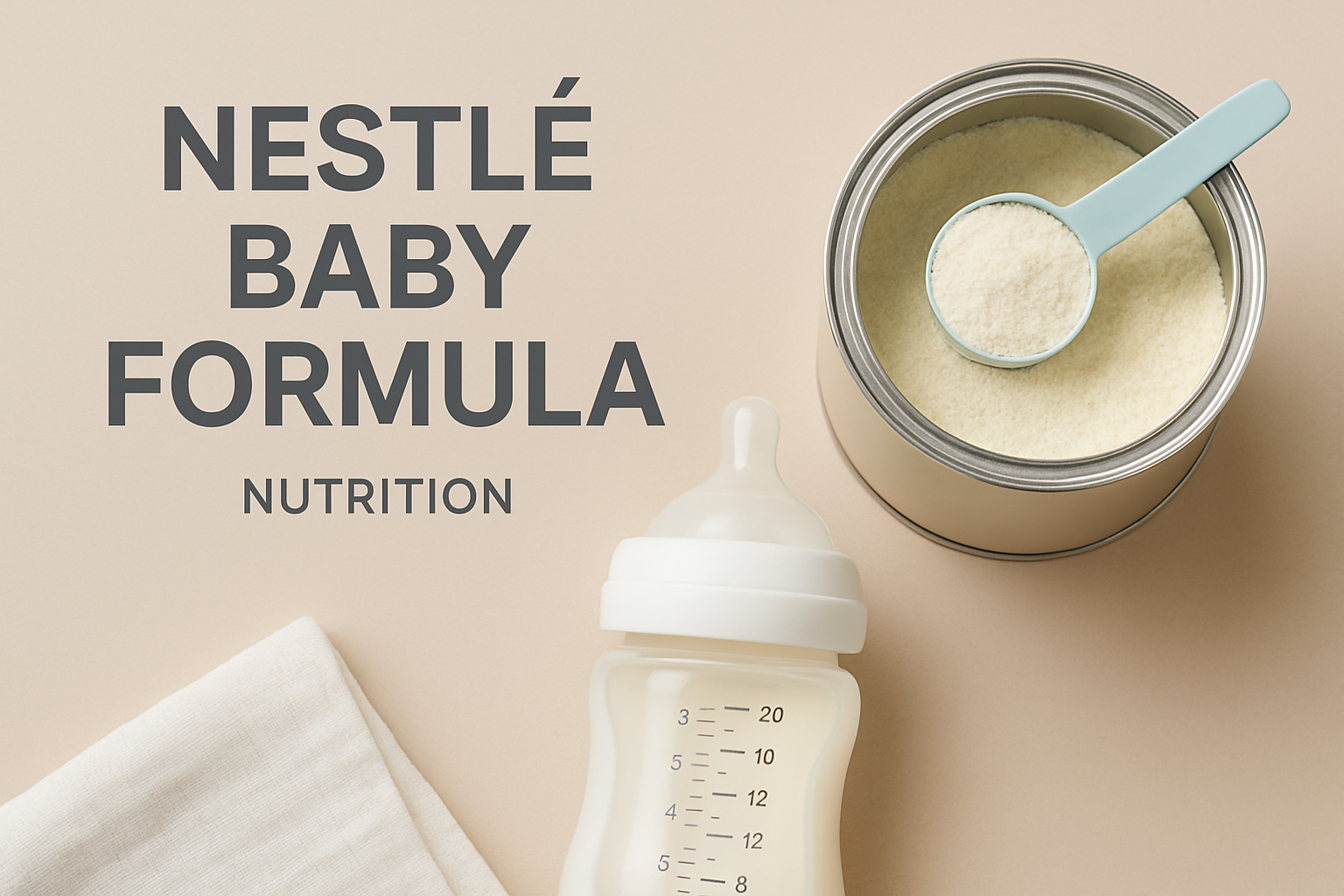
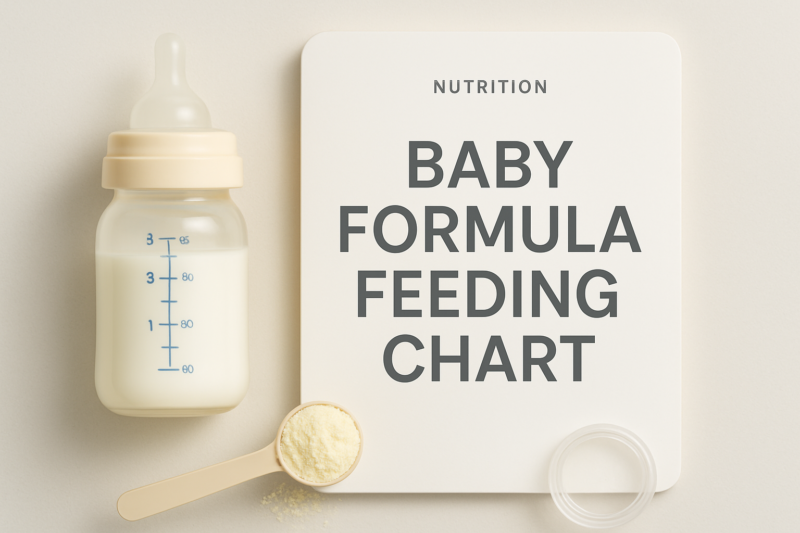
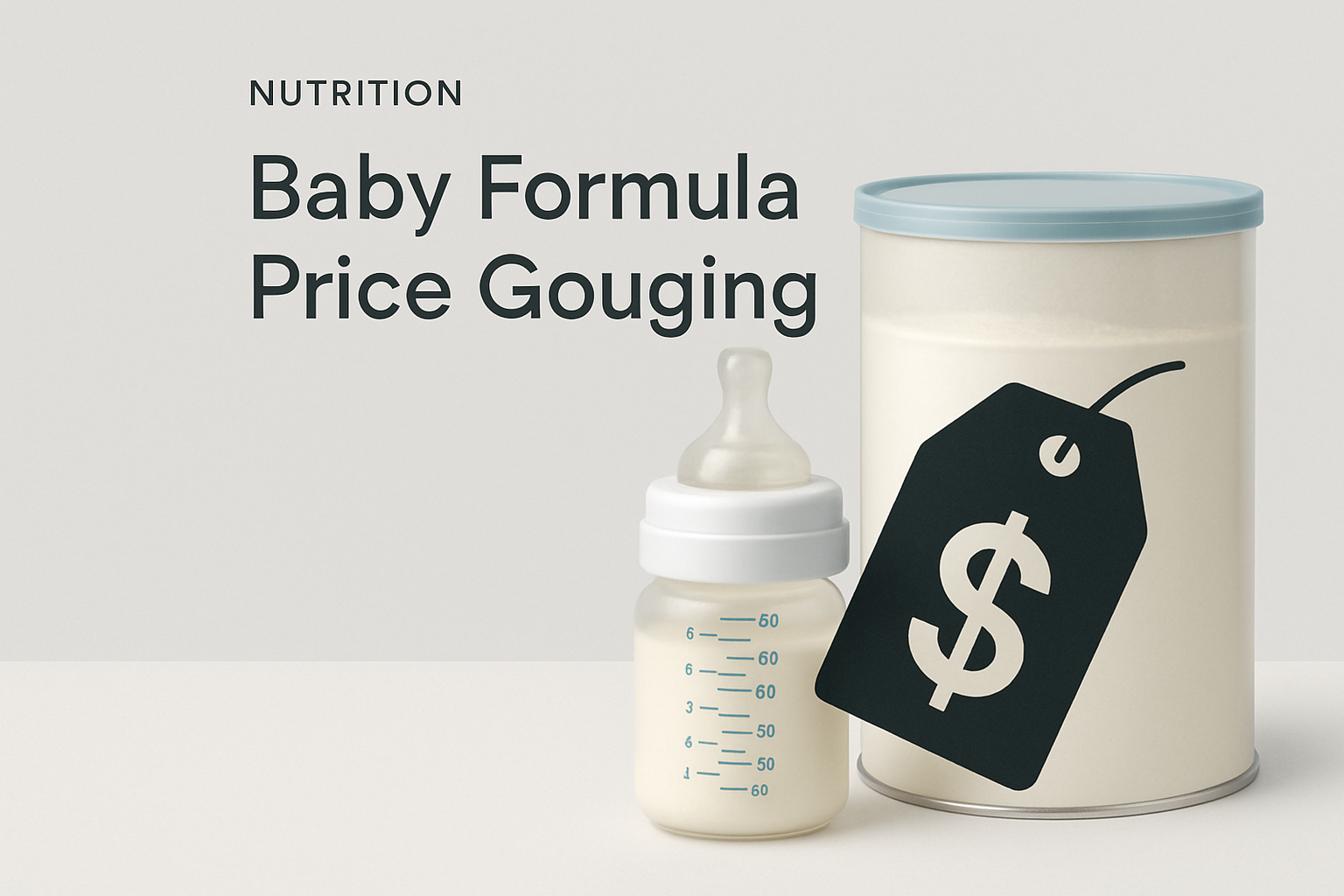

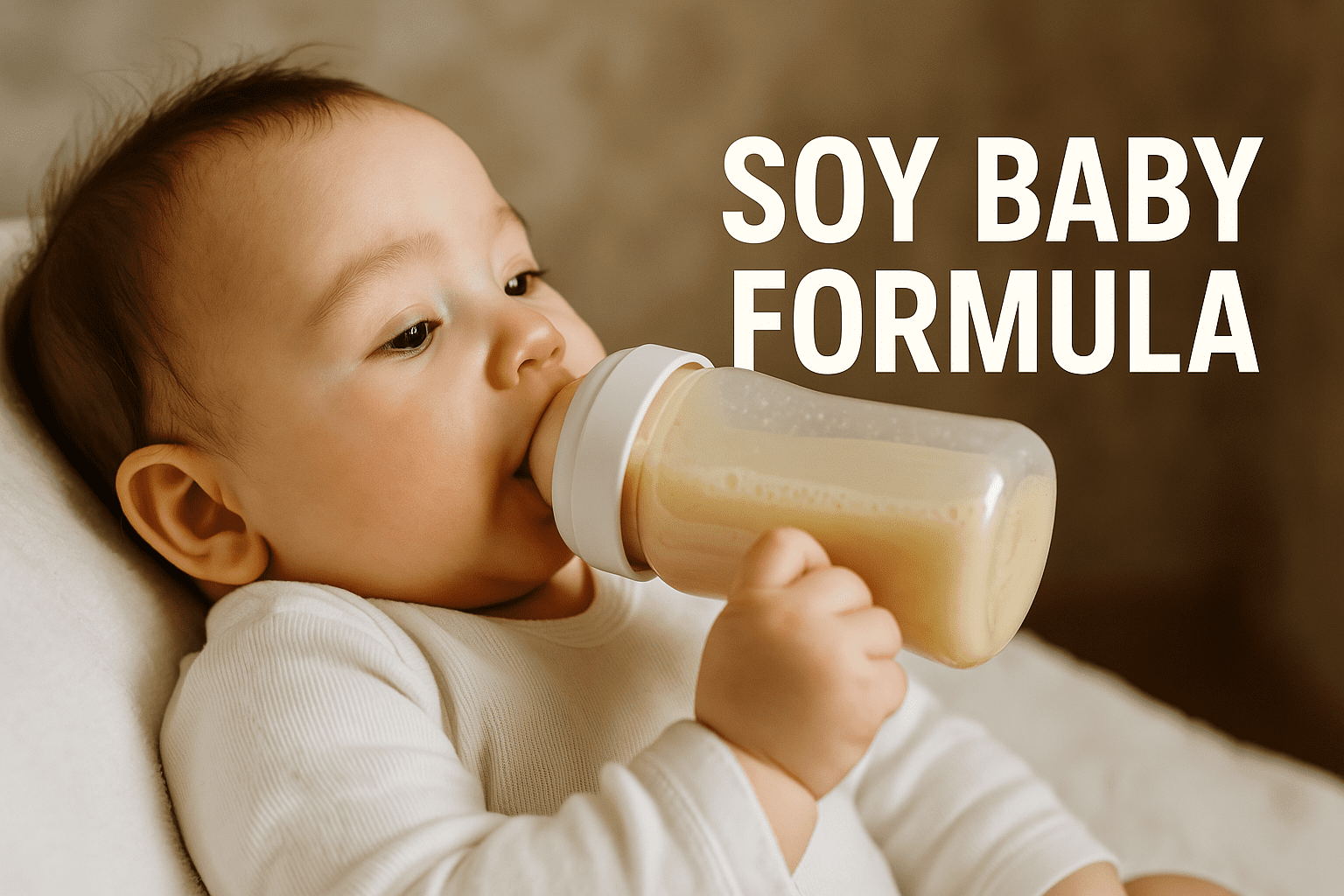
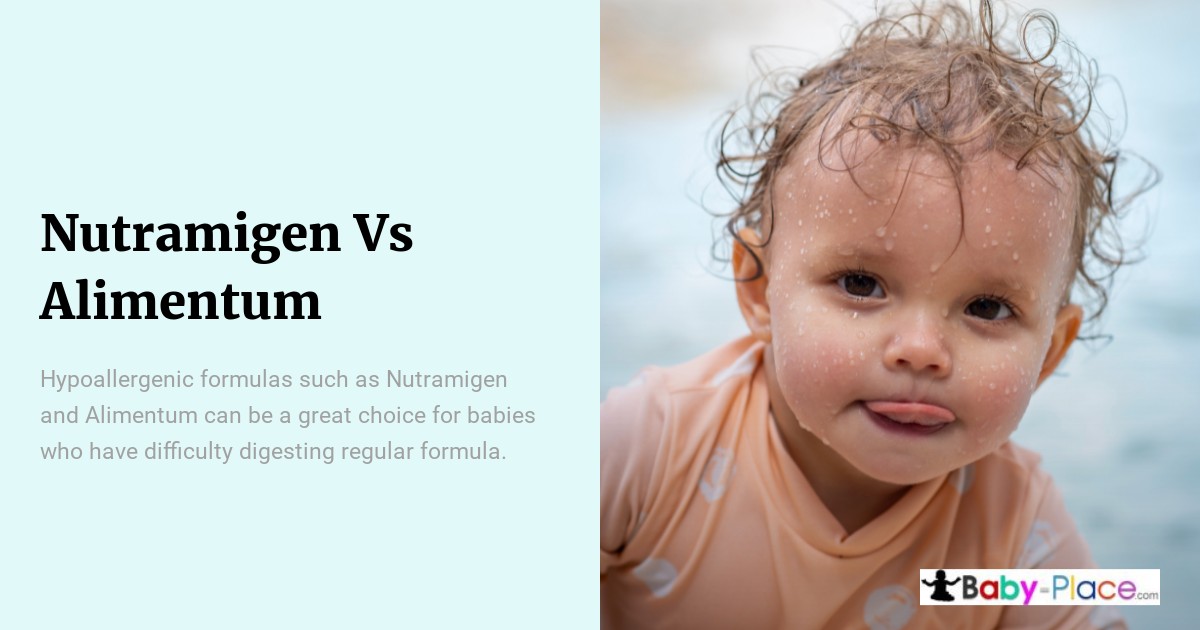
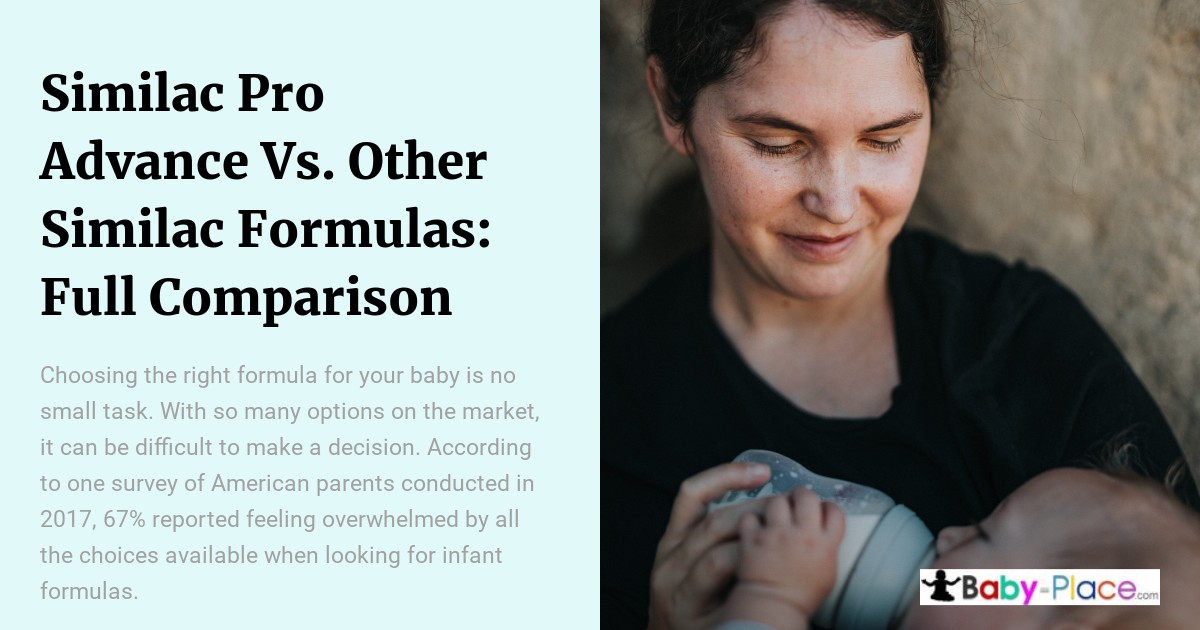
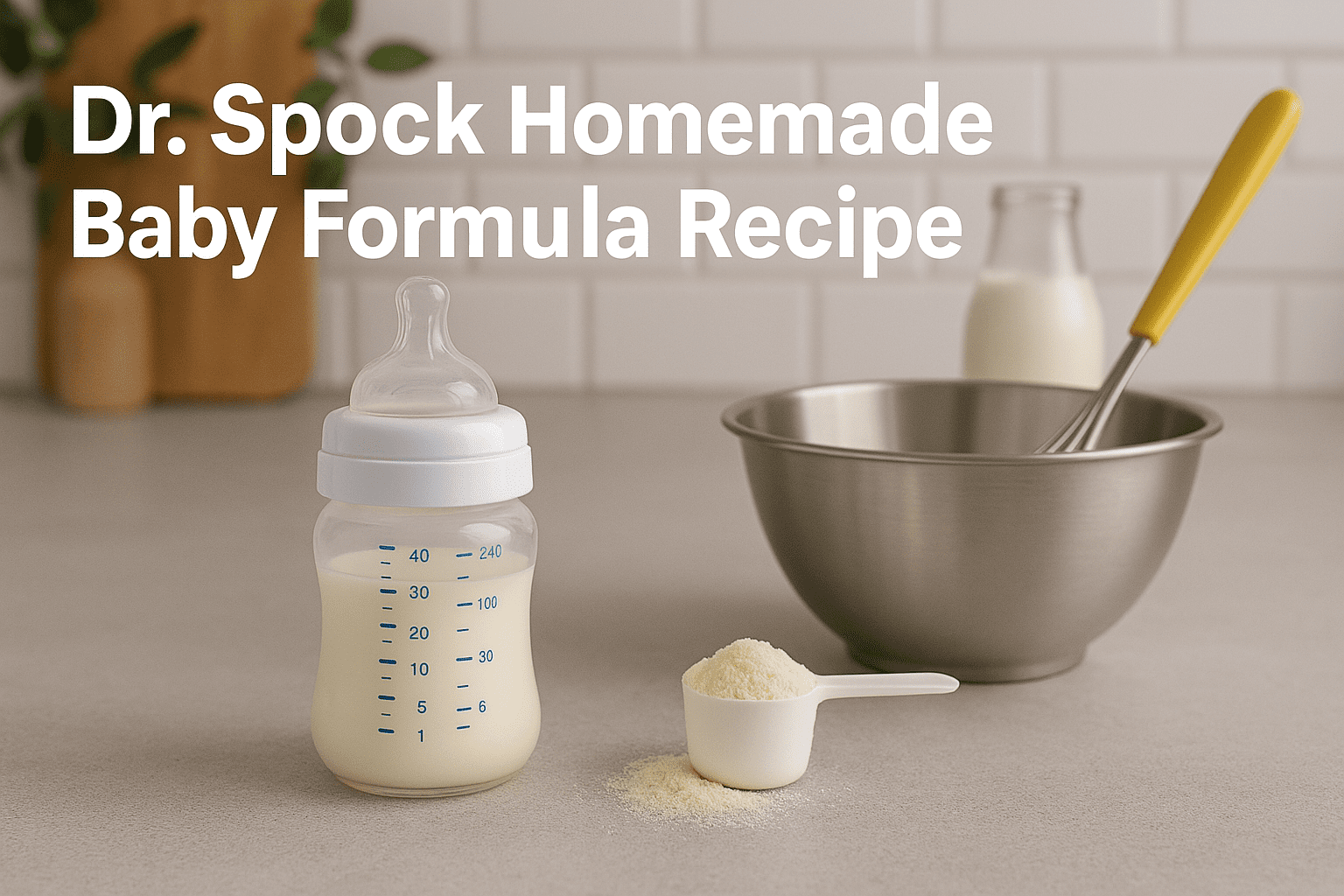
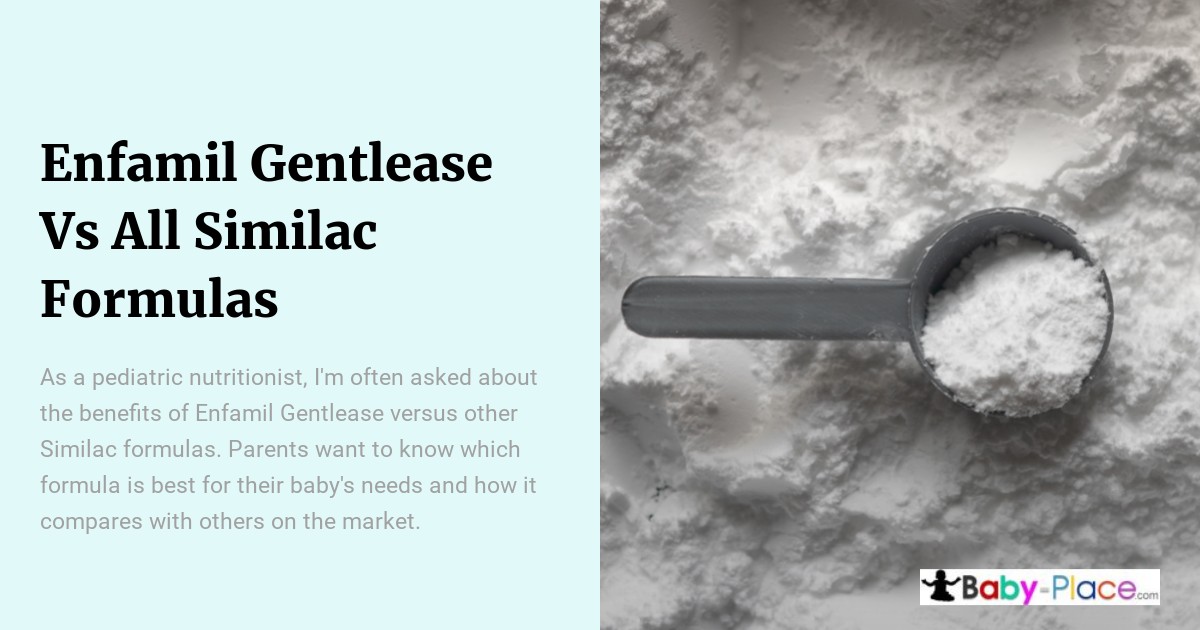
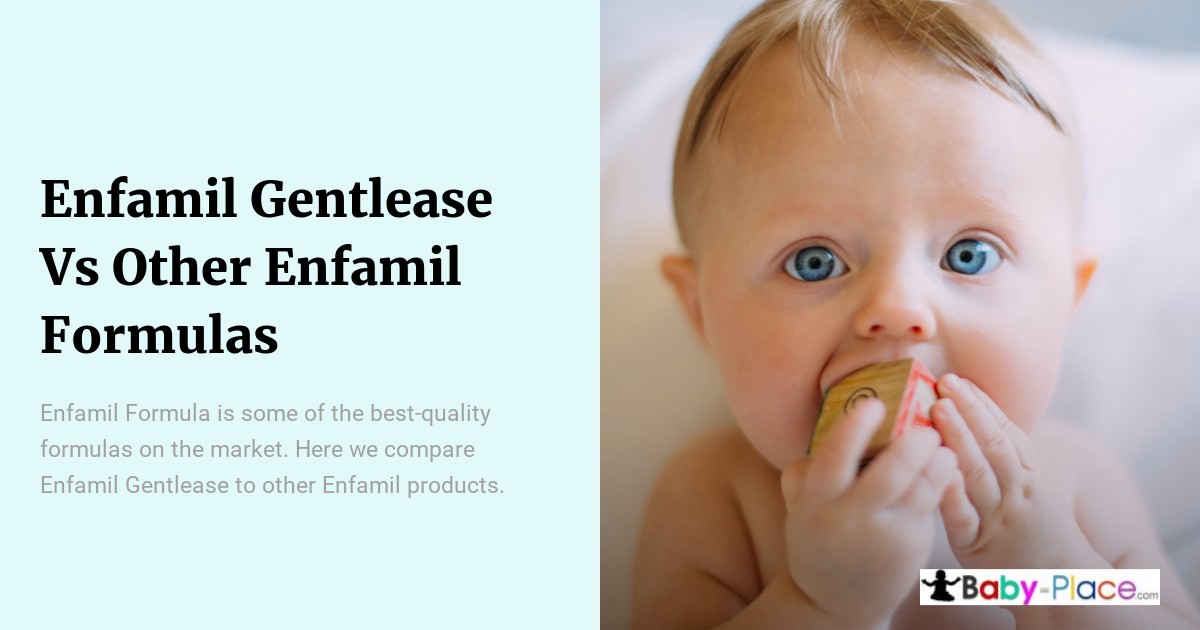
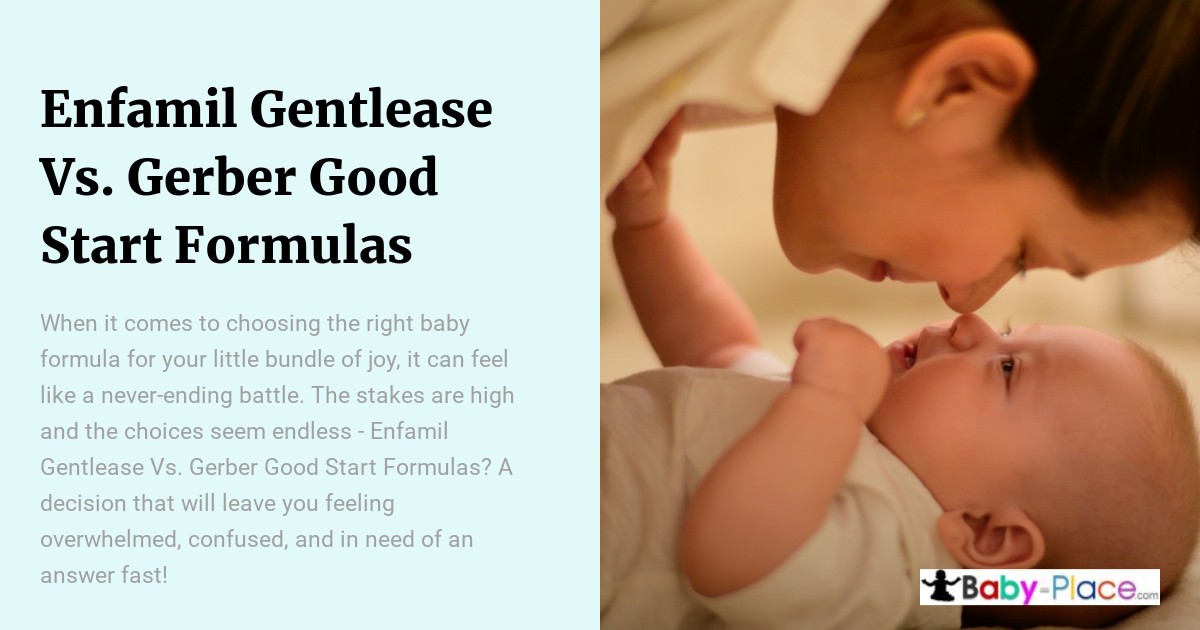

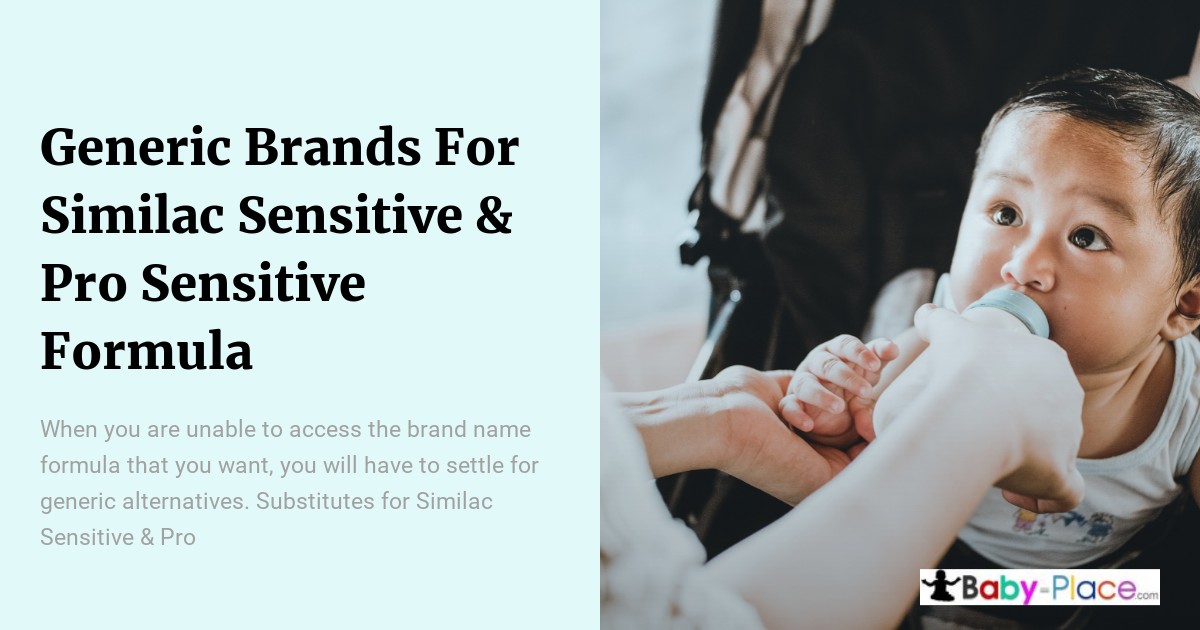

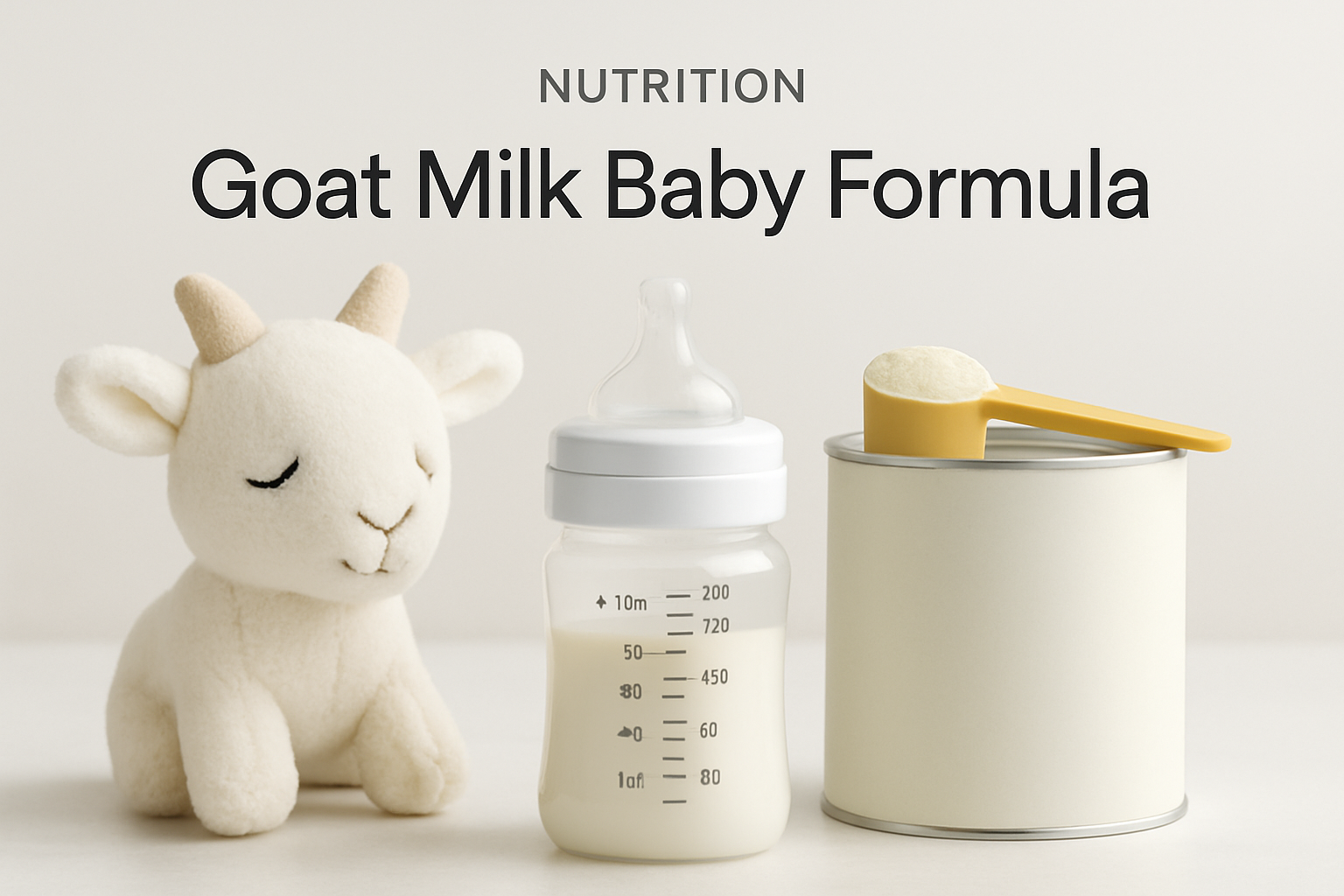
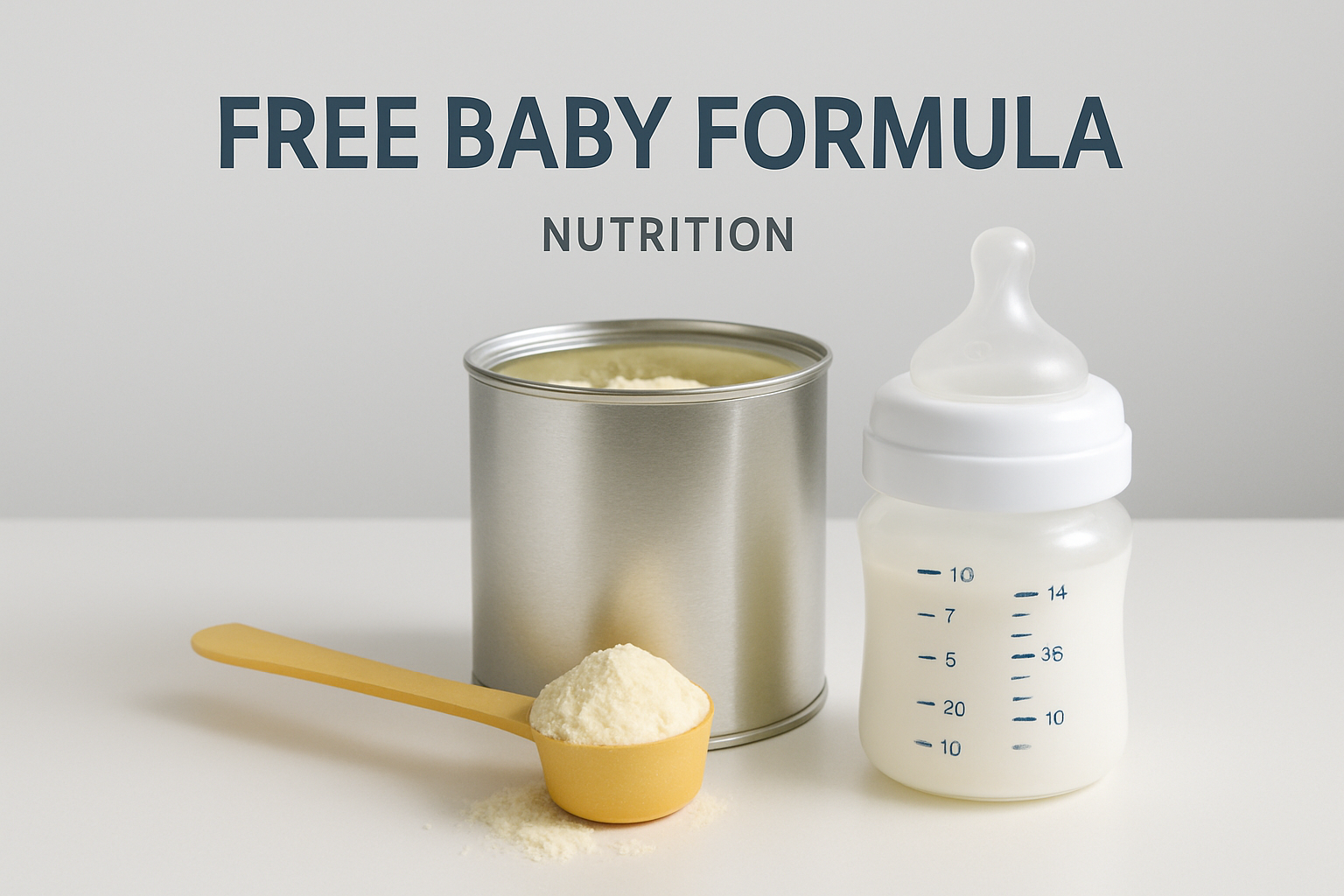
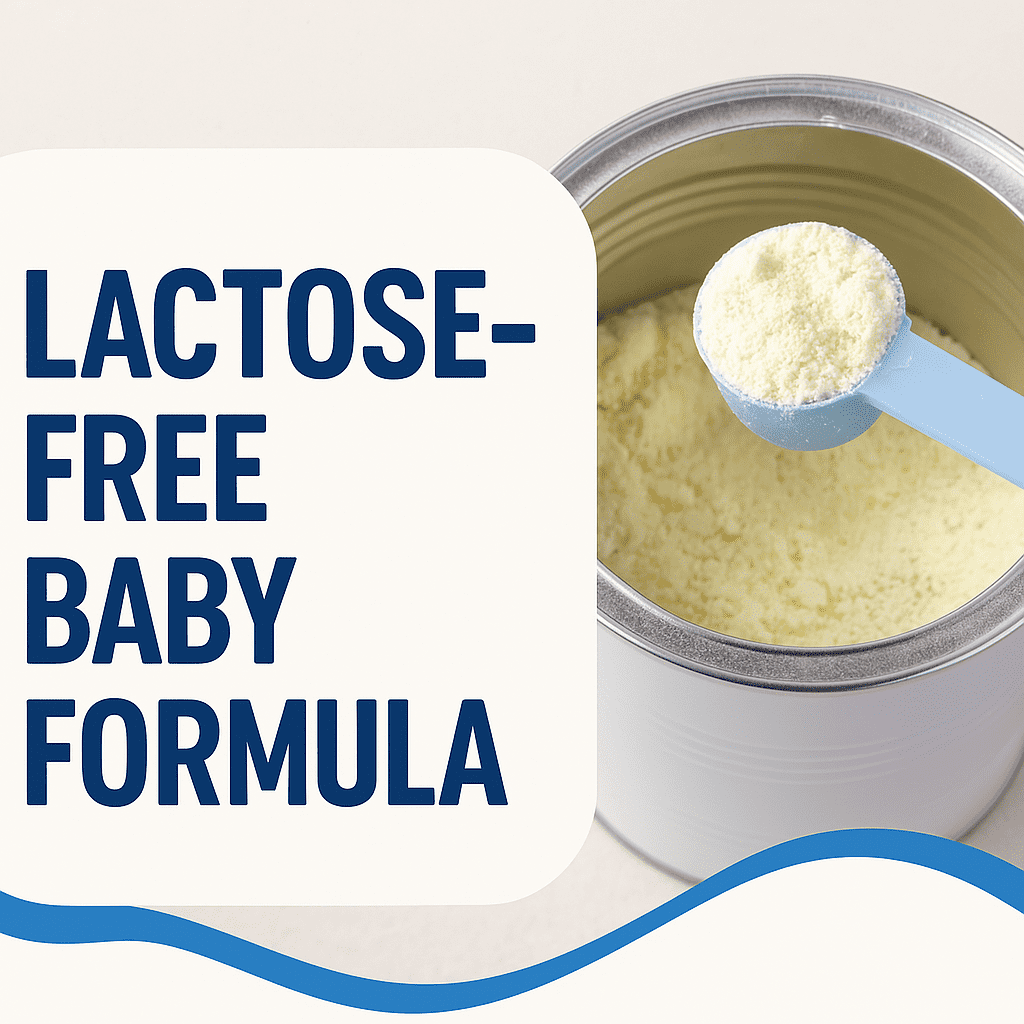


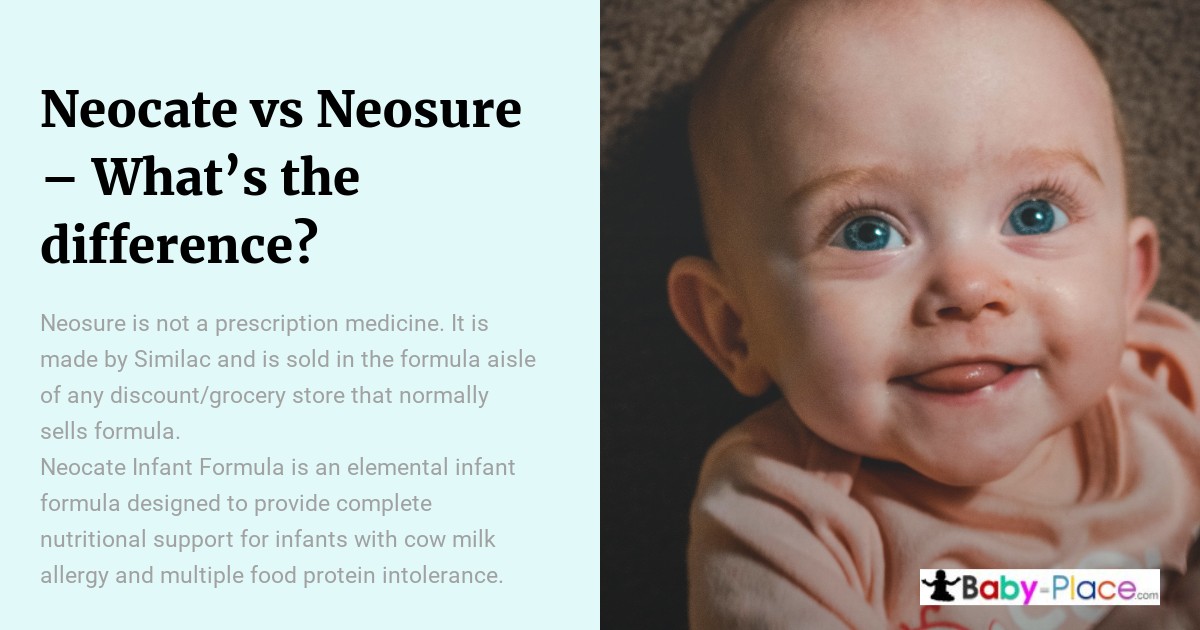
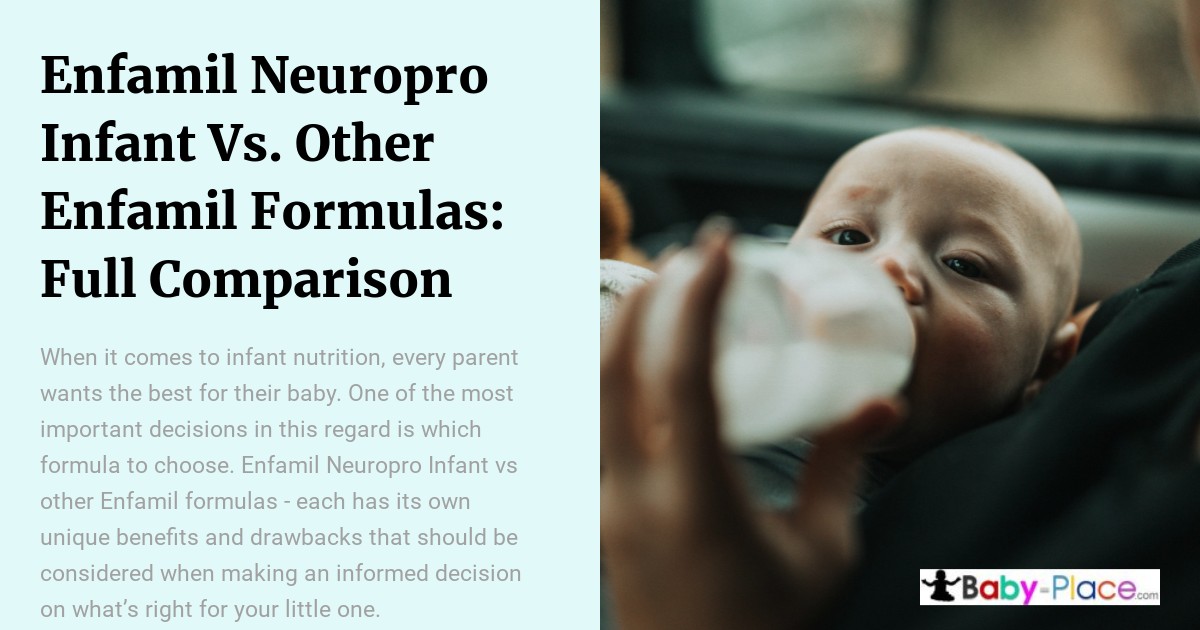
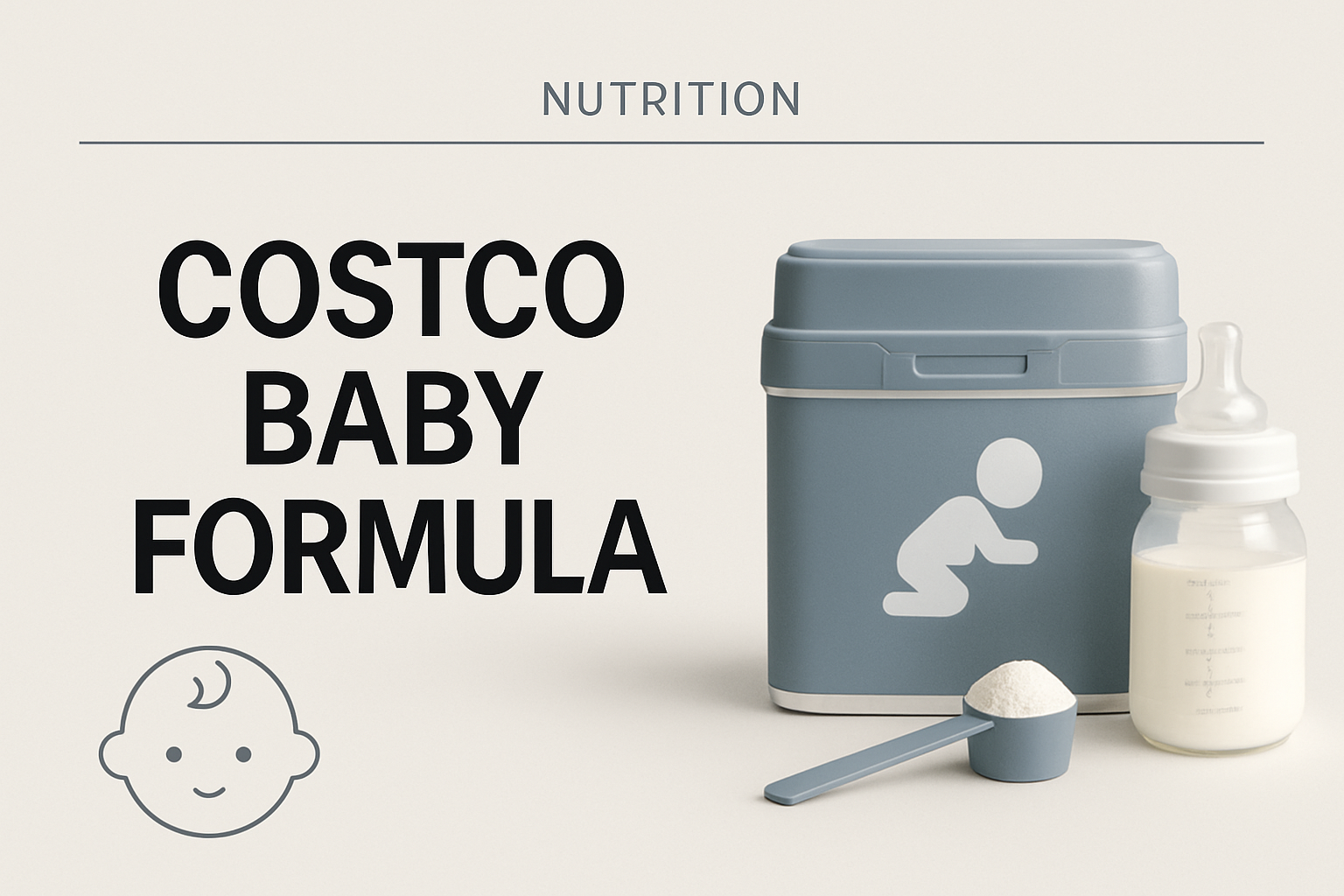
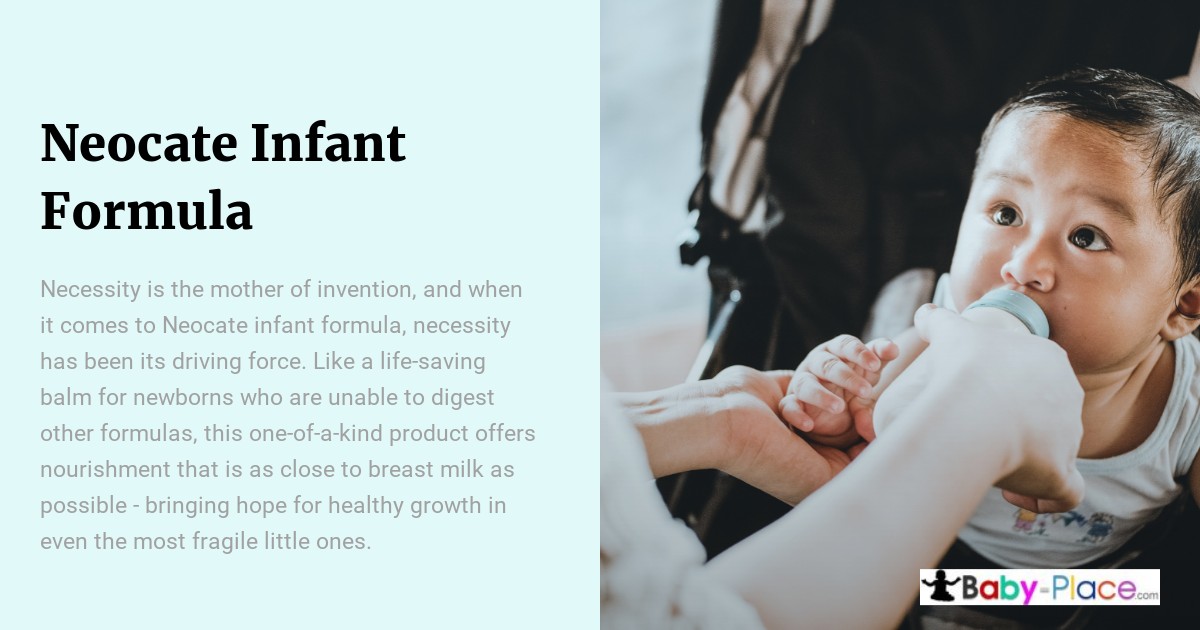
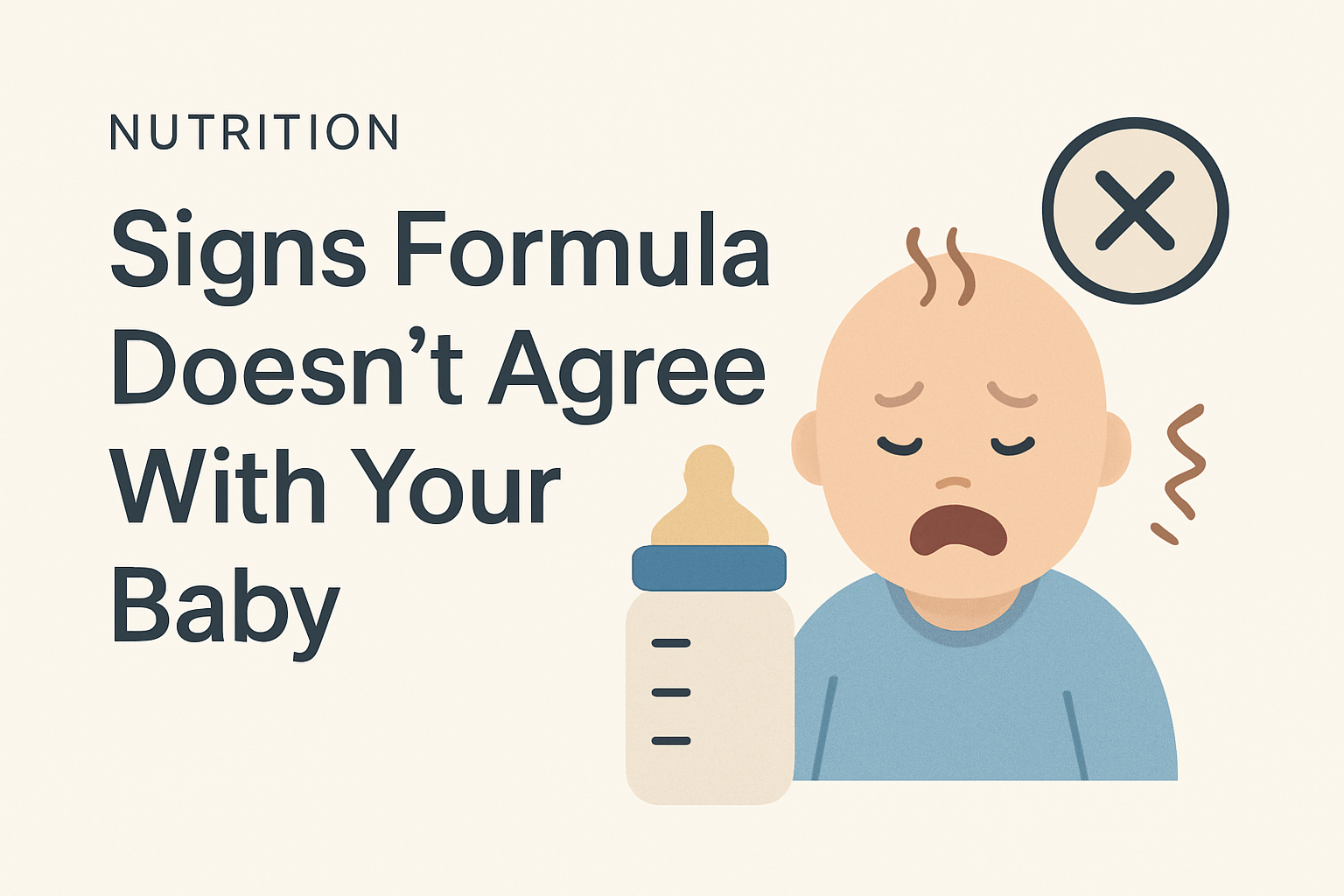
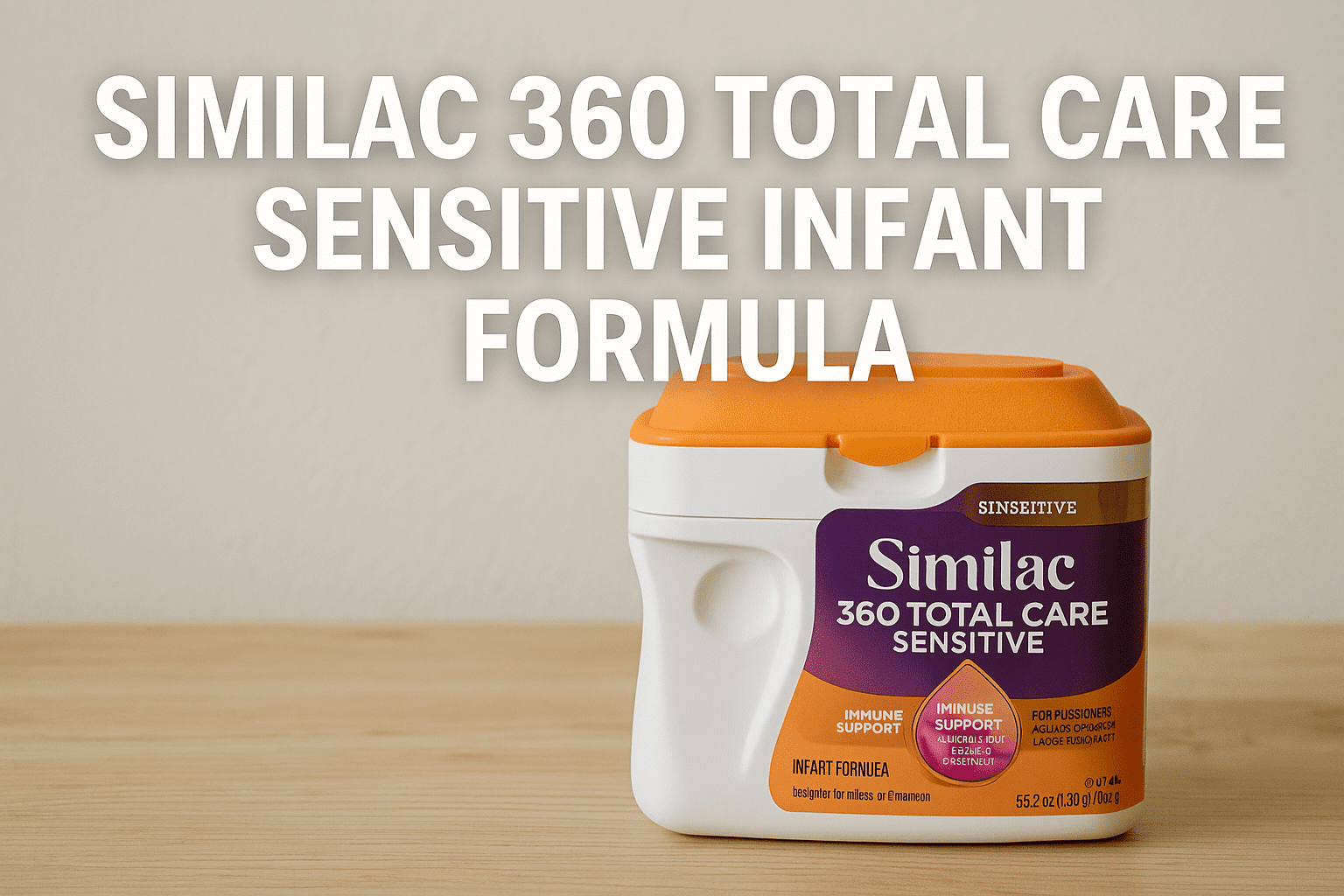

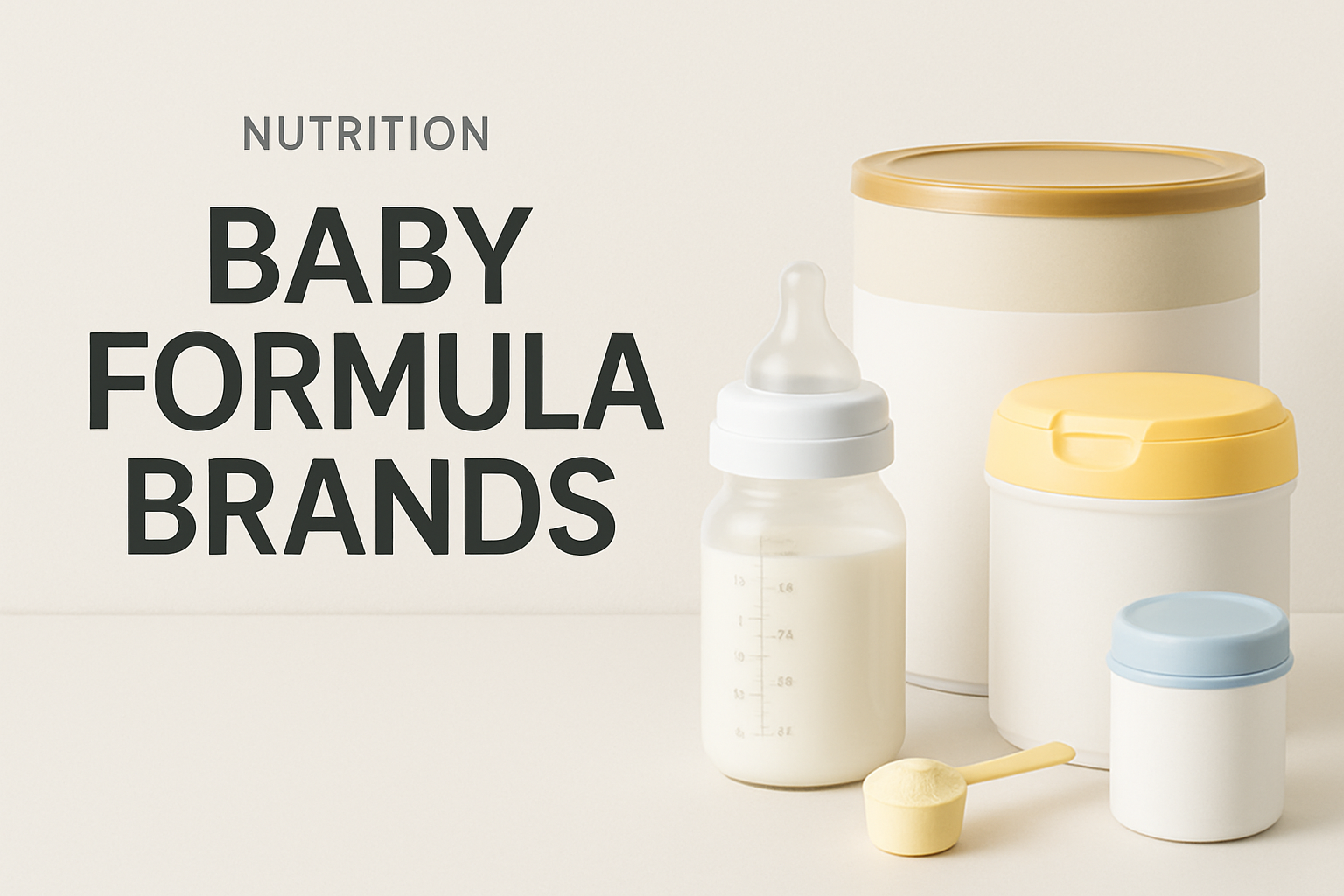

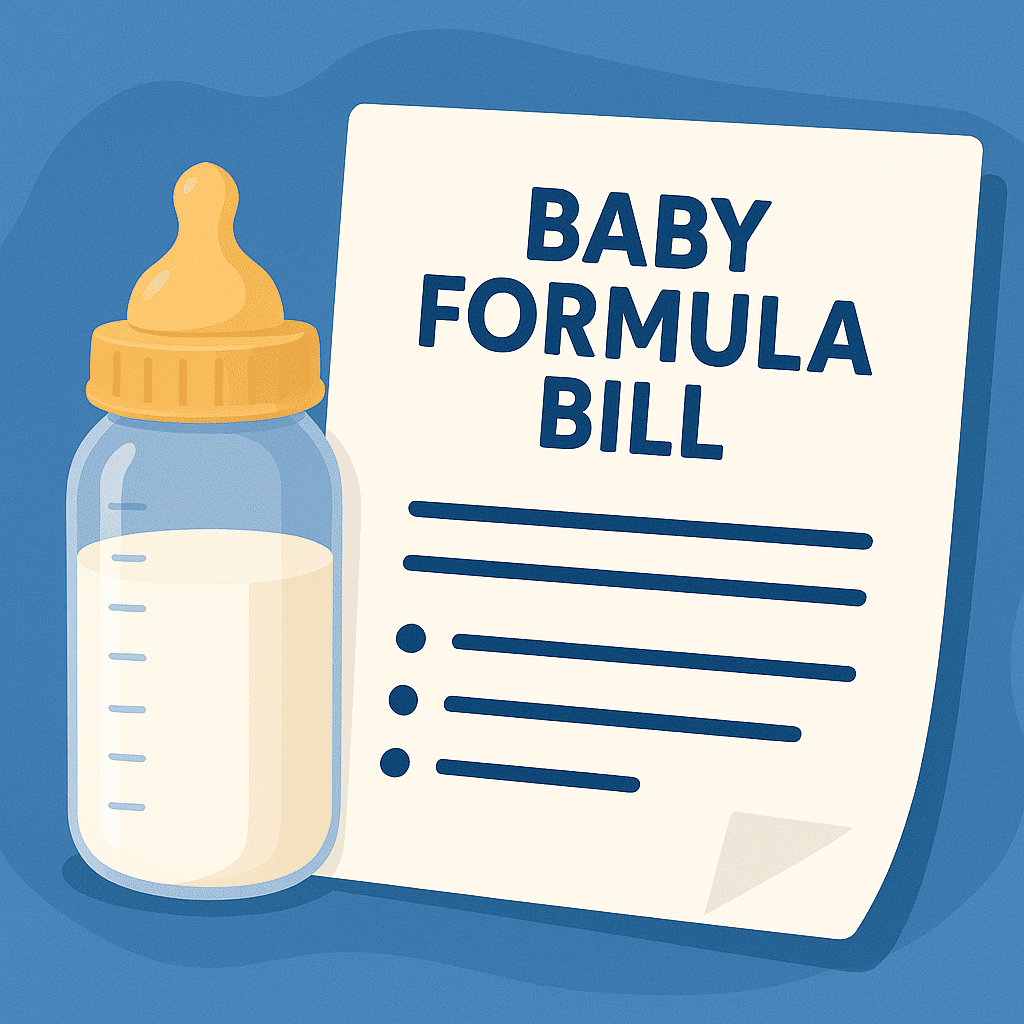
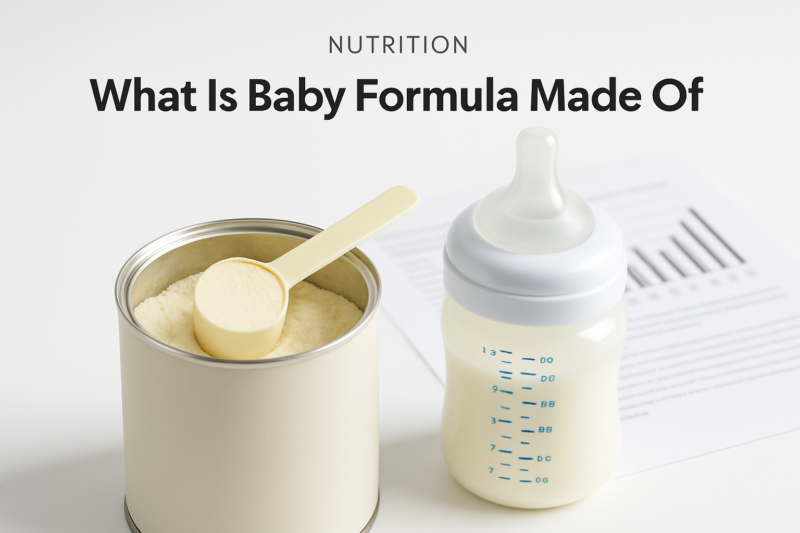

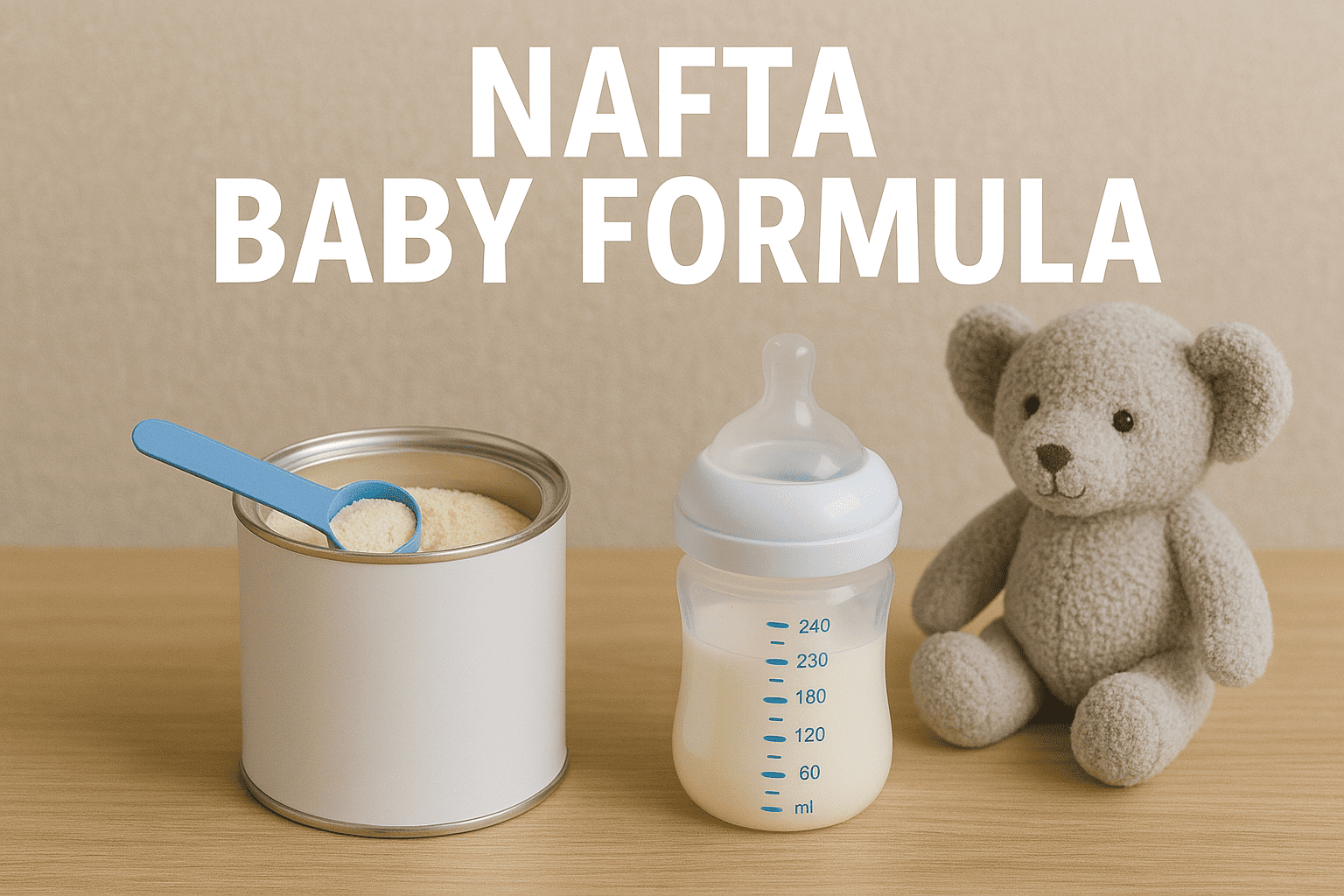
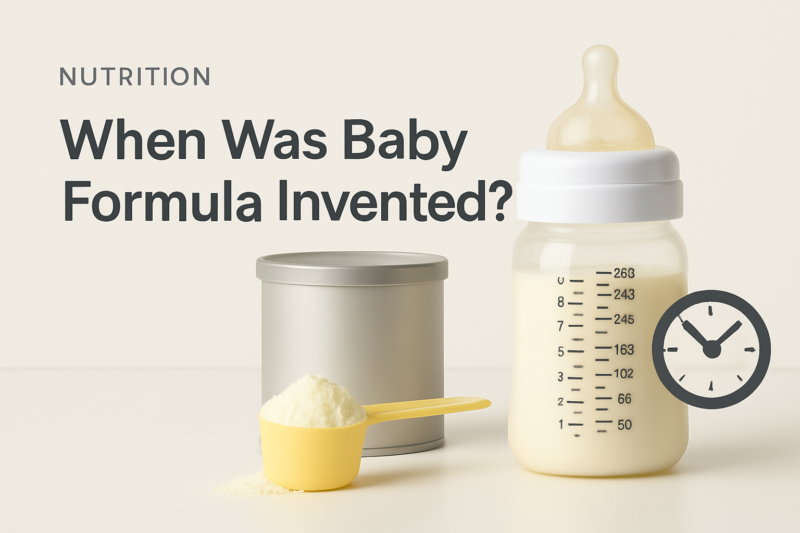
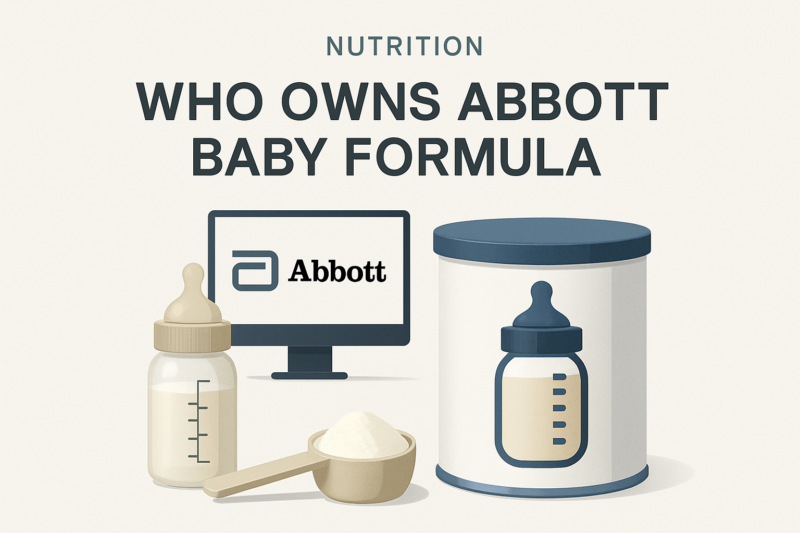
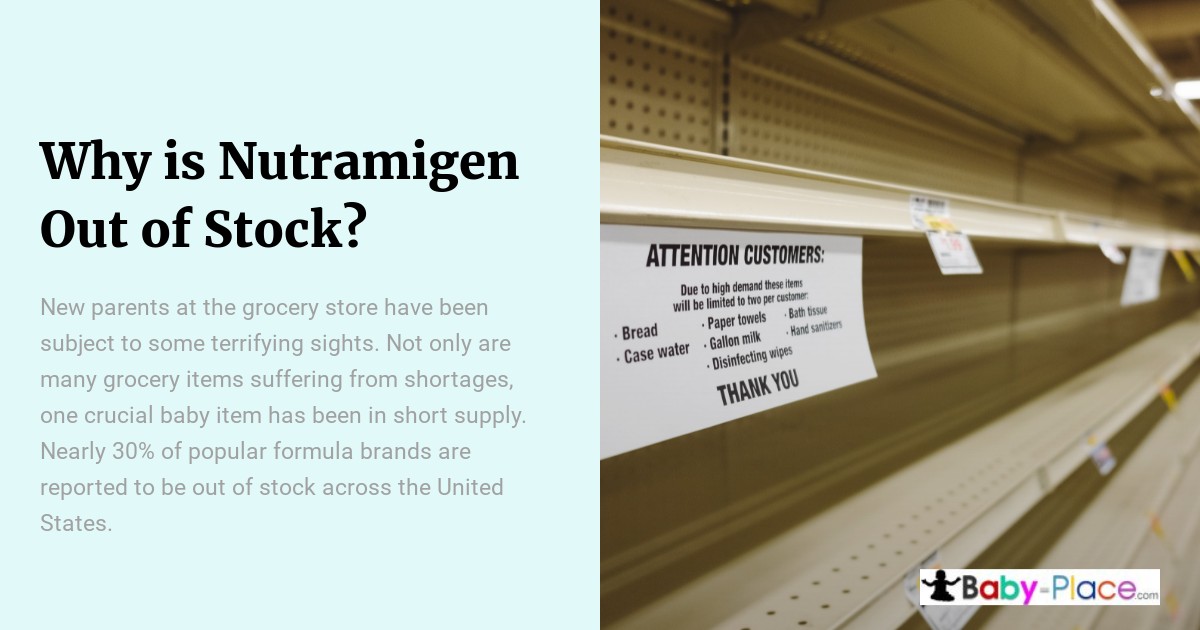
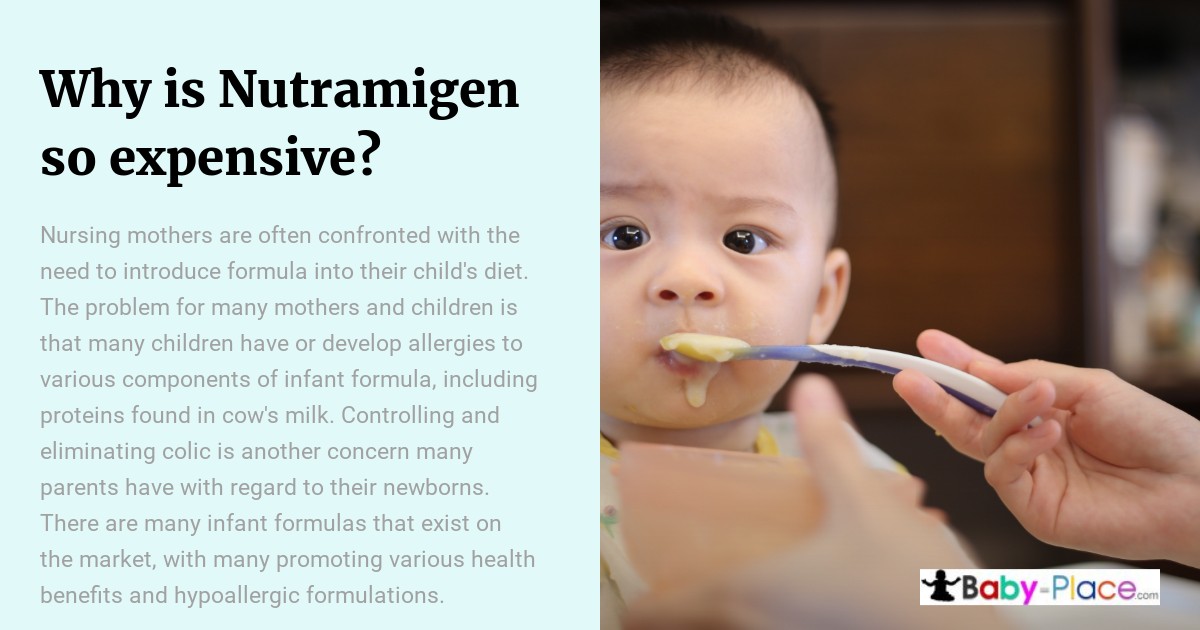
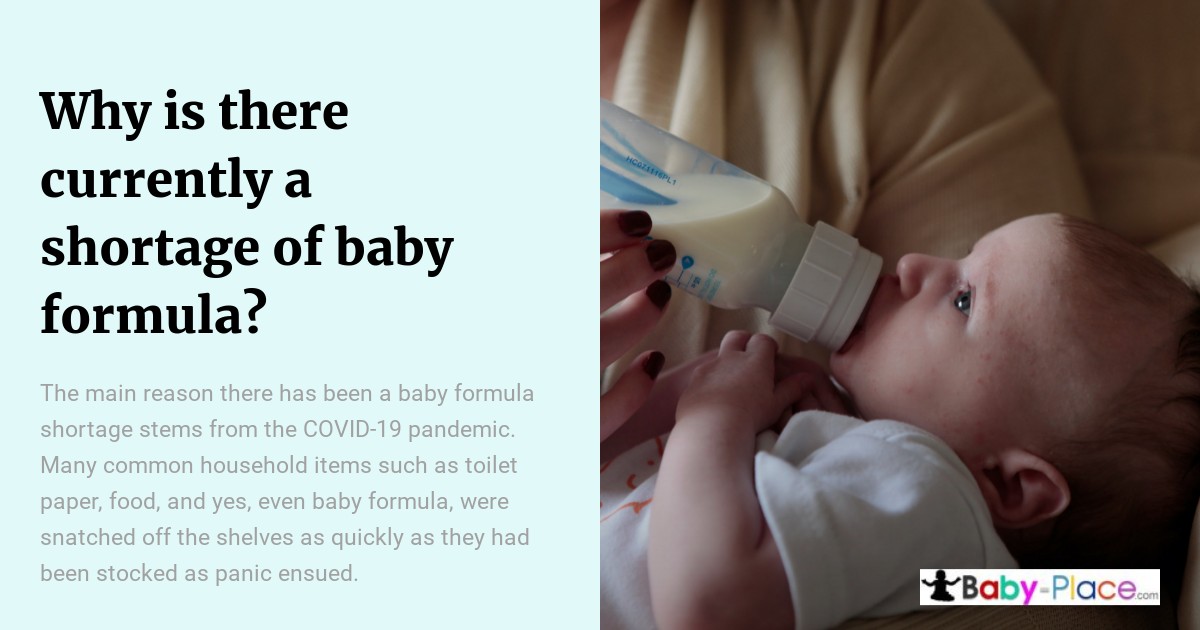

![[Recipe] Homemade Baby Formula Recipe](https://baby-place.com/wp-content/uploads/2025/04/homemade-formula-recipe-e1755526887889.png)
![[Recipe] Making baby formula at home](https://baby-place.com/wp-content/uploads/2022/12/baby-formula-recipe.jpg)